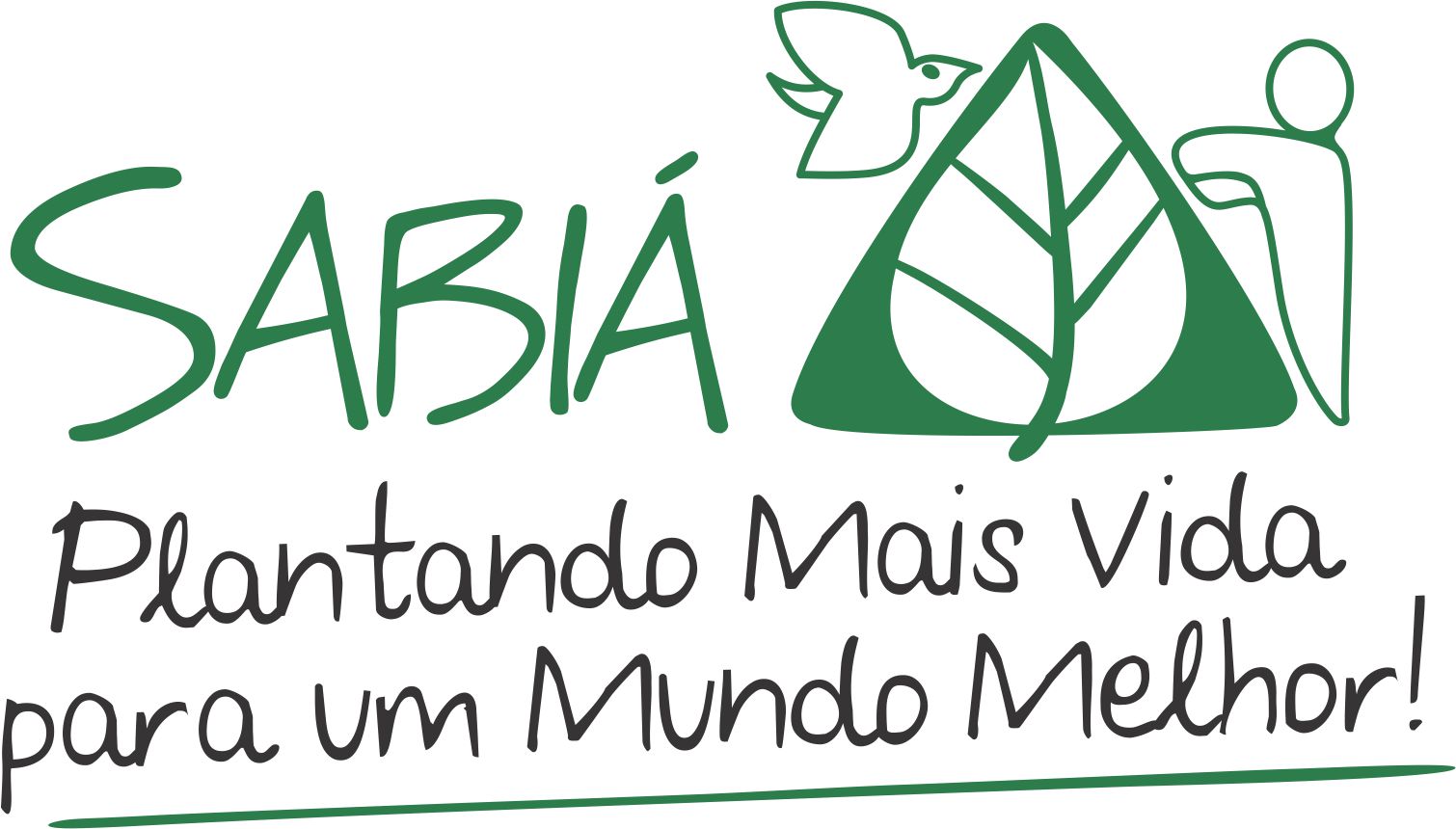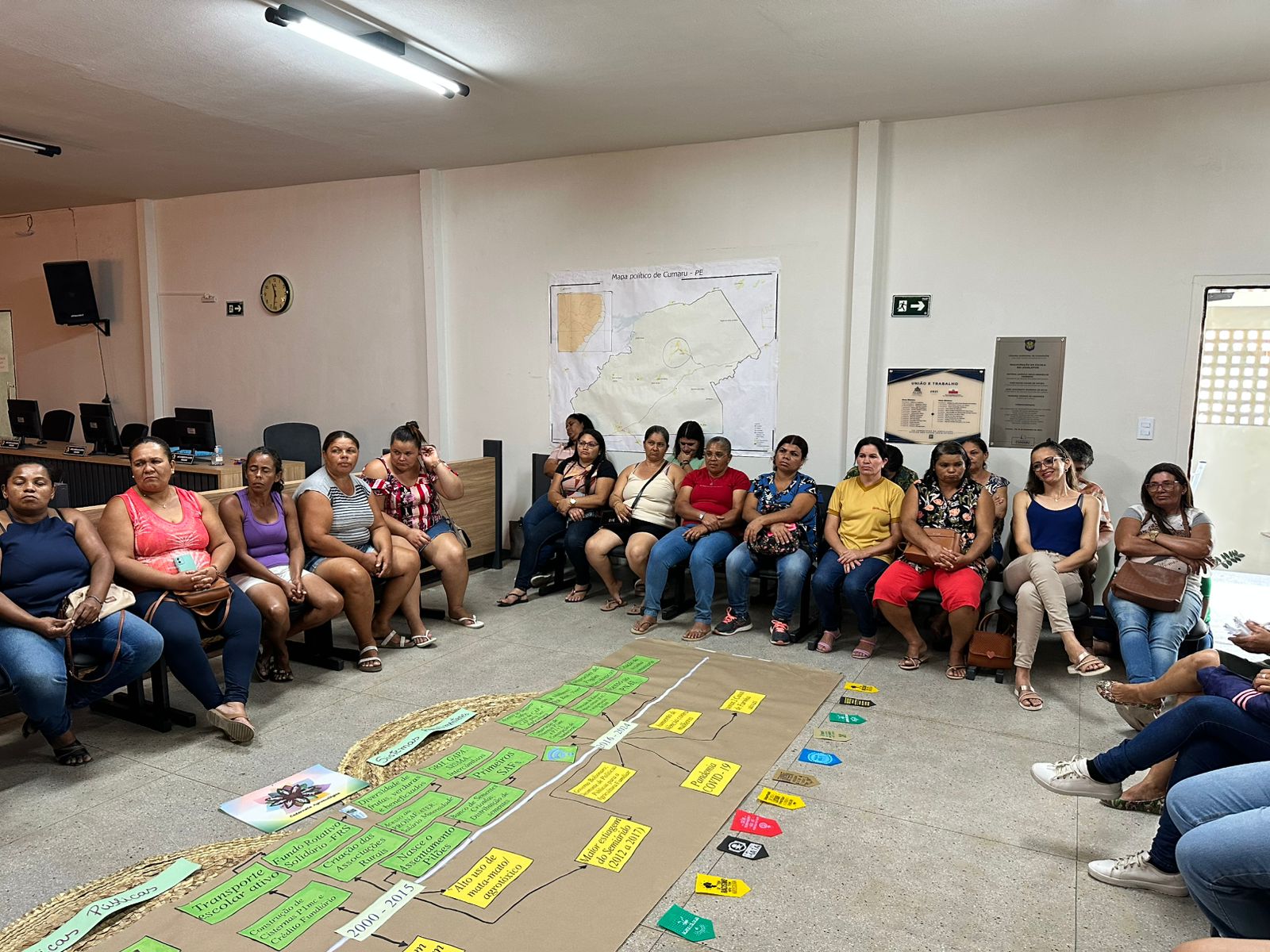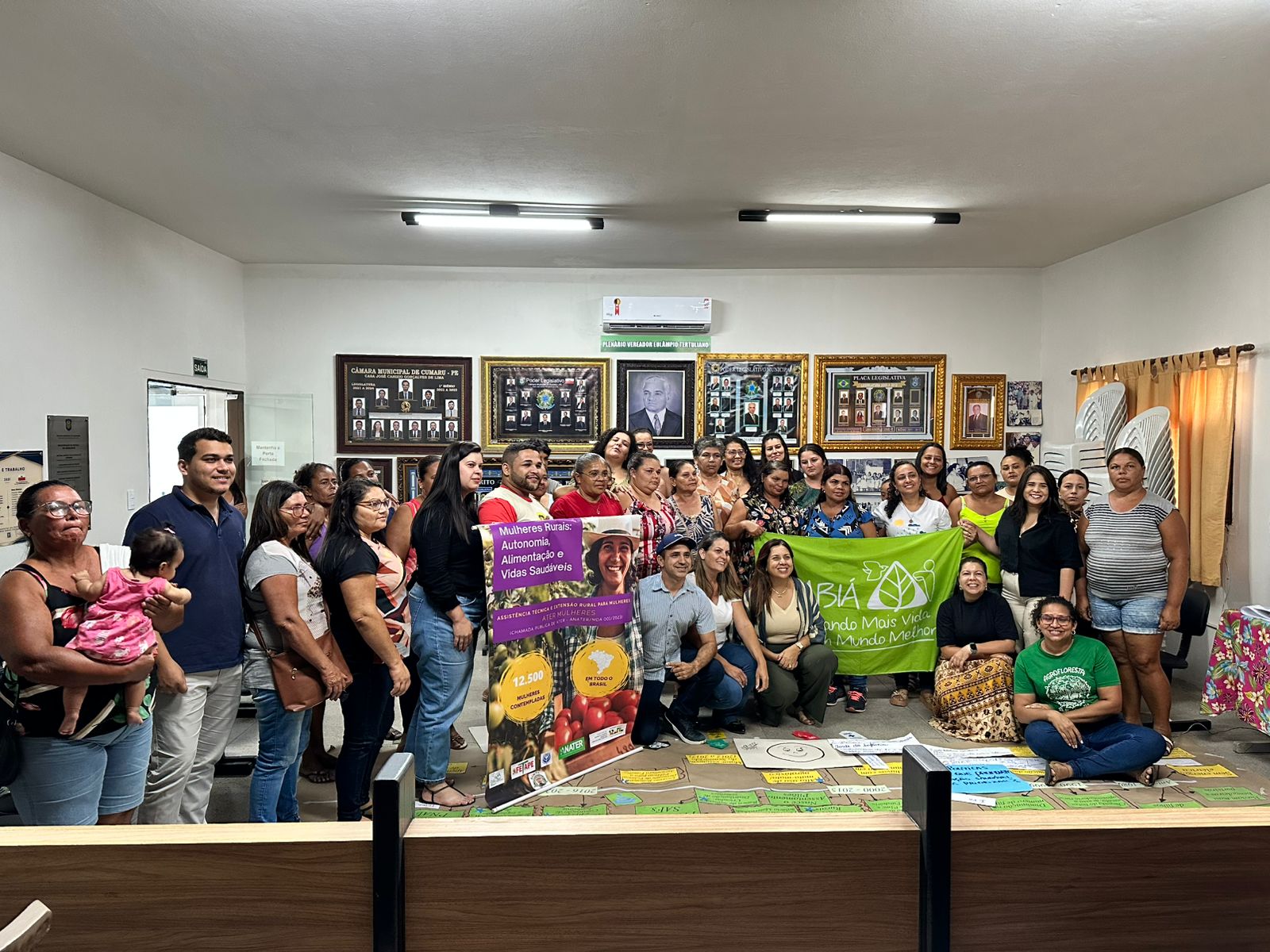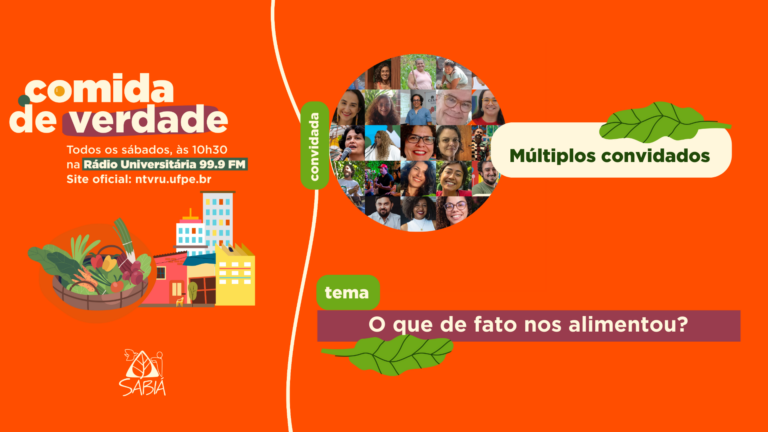Seminar promoted by the Sabiá Center discusses gender inequalities in access to public policies
Timeline built by women farmers sheds light on denied rights
By Darliton Silva
The State Seminar on Inequalities in Women’s Access to Public Policies, held on Tuesday (12) in the Town Hall of Cumaru, highlighted the trajectory of changes in the municipality’s agri-food systems, with a special focus on family farming. The event also highlighted how gender inequalities affect women’s access to public policies and the development of local agri-food practices.
The activity was attended by 40 women from the cities of Cumaru, Caruaru and Bezerros, as well as representatives from the Alternative Technology Service (SERTA) and the Northeast Rural Workers’ Women’s Movement (MMTR-NE), which are partner organizations of the Sabiá Centre. Also present were the mayor of Cumaru, Mariana Medeiros, the secretary for social assistance, Andressa Ferreira, the secretary for women, Elizabete Monteiro, and the secretary for agriculture, Rogério Jerônimo.
By analyzing the timeline constructed by the women farmers, it is clear that family farming in Cumaru is going through an important moment of transition, which brings challenges and opportunities for the future. Among the main opportunities is the potential to strengthen food and nutritional security through sustainable and innovative practices, where healthy and diversified food can be promoted. In addition, there is room for greater appreciation of local production, which can stimulate internal markets and boost the region’s economy.
According to the mayor of Cumuru, Mariana Medeiros, family farming is of fundamental importance to the city, since it is where crops are grown, animals are raised, food is produced and the economy grows. “Our municipality has a great responsibility towards farmers,” said Medeiros.
These advances will only be possible if there is a consistent confrontation of the challenges that still permeate the trajectory of family farmers, especially women. Barriers such as limited access to credit, social technologies for living in the semi-arid region and technical assistance remain. Gender inequalities are reflected in the overload of work, lack of recognition of women’s role in the countryside and difficulty in participating in decision-making spaces.
According to Juliana Peixoto, Centro Sabiá’s territorial coordinator, the idea of the seminar is to put together a document that points out the most urgent and important issues for family farming that dialogue with production systems and public policies aimed at women. “Based on this document, women farmers will be able to engage in a better dialog in spaces of political articulation,” said Peixoto.
In order to achieve a dignified future, it is important that specific public policies are implemented effectively, taking gender equity into account and promoting training, access to financial resources and the empowerment of women in the rural context. Strengthening these actions will be fundamental for a fairer and more inclusive agri-food system that offers affordable, quality food for the entire community.
The State Seminar on Inequalities in Women’s Access to Policies is organized by Centro Sabiá in partnership with ANATER – the National Agency for Technical Assistance and Rural Extension and the Northeast ATER Agroecology Network.
Nothing found.







